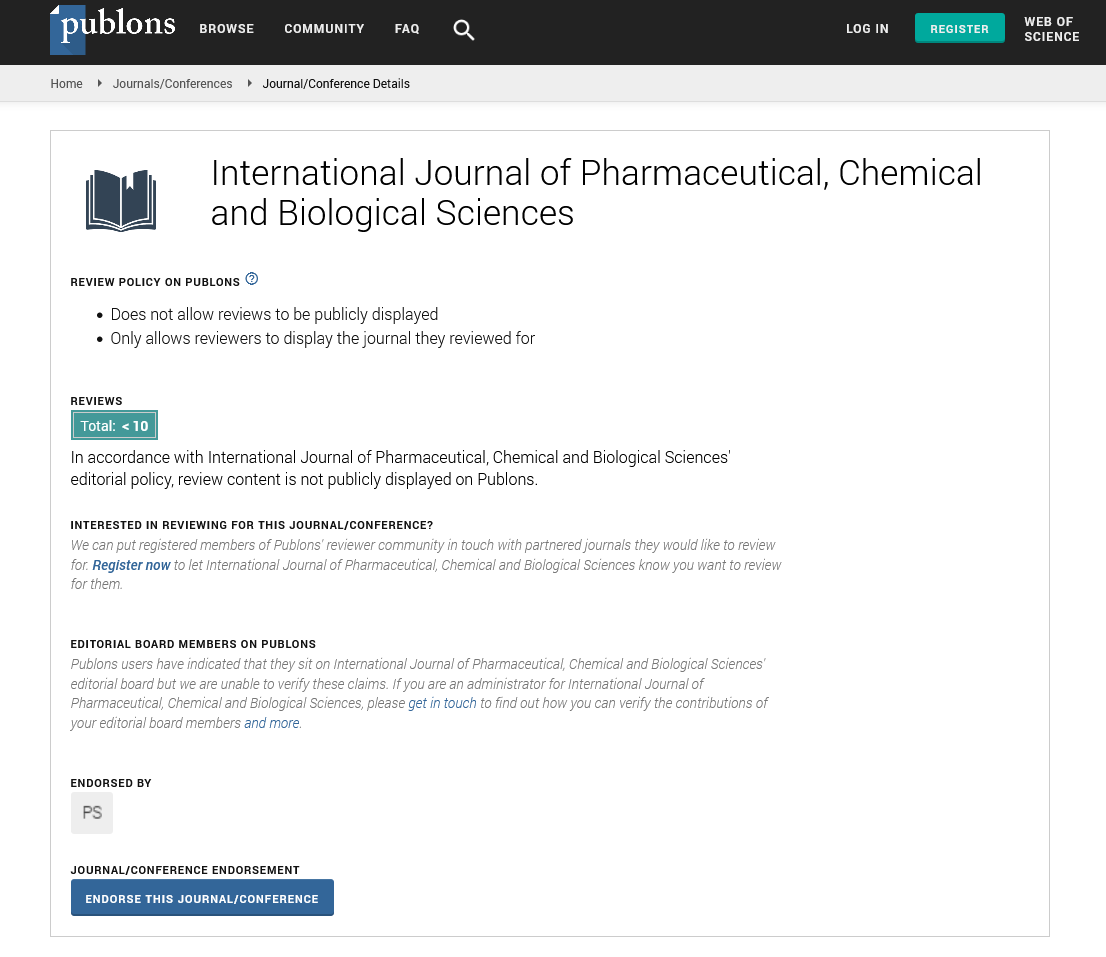Abstract
Author(s): A.El Abbouyi*, S.Echarrafi,N. Filali-Ansariand S.El Khyari
The present study was aimed to evaluate the wound healing activity of the ethyl acetate extract of seeds of C. australisusing incision wound model in Sprague-Dawley rats. The healing effect produced by the plant extract, was assessedby measurement of wound sizes every 2 days until total recovery. Wounds were induced in rats divided into three groups of 5 animals each (Control, group treated with plant extract,group treated with standard ointment (Madécassol®)). Our results showed a general decrease of wound area upon application of the treatment and with time. The ethyl acetate extract of C. australissignificantly promoted very significantly (P<0.01) the wound healing activity.The wound healing rate is accelerated (41%, 63% and 94% at day 2, 4 and 6 respectively) when compared to that ofcontrol group (23%, 38% and 47%). The wound healing rate of plant extract is similar to that exhibited by standard ointment (40%, 64% and 97%). To our knowledge it is the first time that this activity is reported with Celtis australis extract.The plant extracts yielded higher polyphenoliccompounds content followed by polyphenols (367,96mg/Kg of seeds), flavaonoids (11,11mg/Kg of seeds) and condensed tannins (516,8mg/Kg of seeds). A positive linear correlation was established between these compounds and the wound healing property. The results obtained from this study revealedpromising wound healing property of ethyl acetate extract of seeds from C. australisand provide a scientific rational for the traditional uses of this plant.

